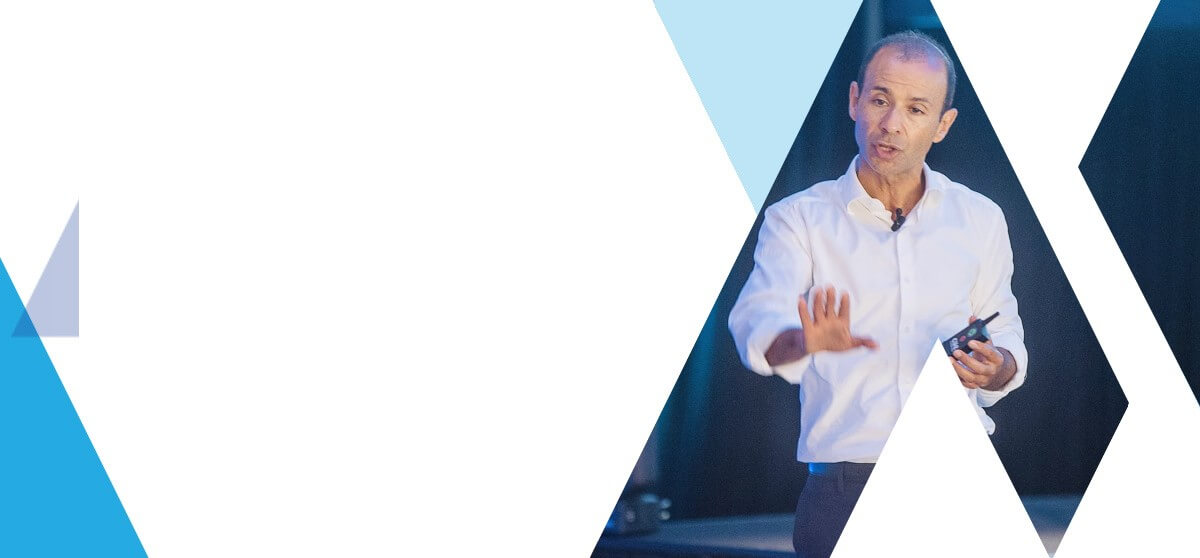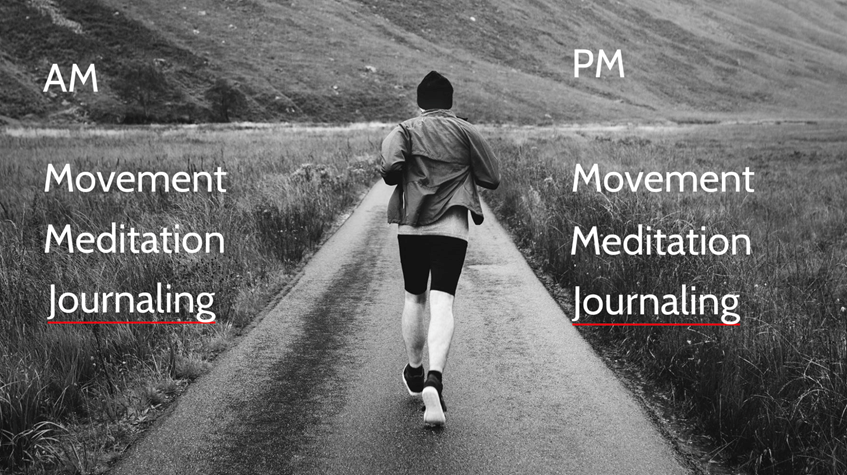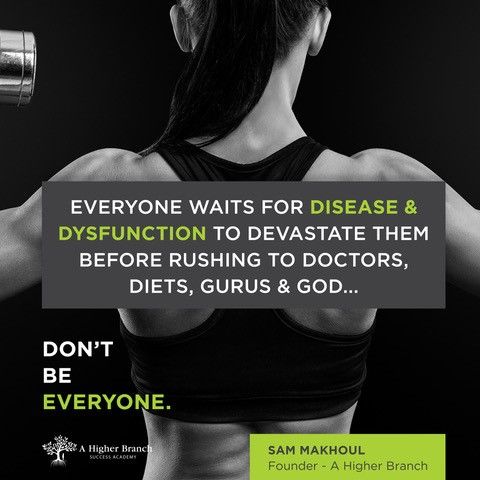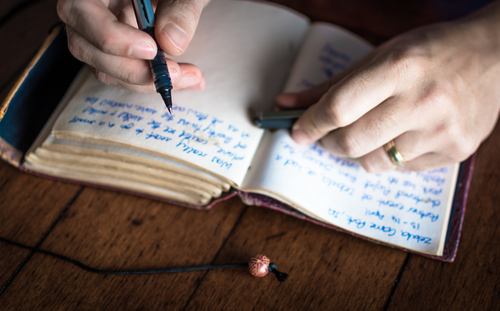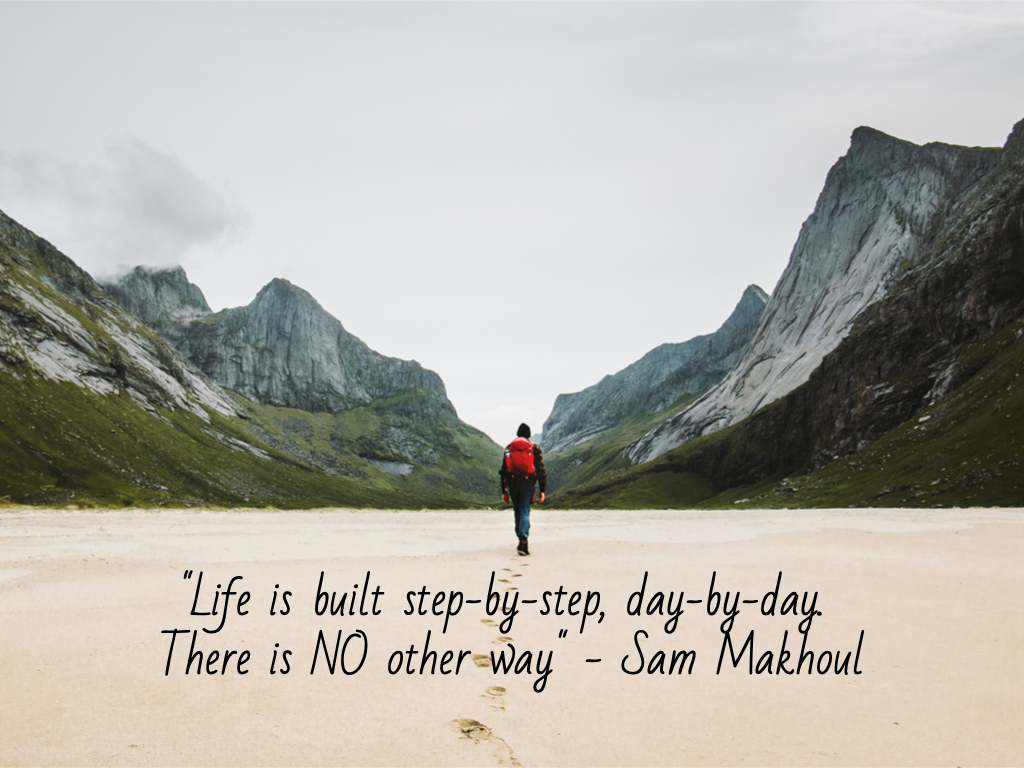This article contains a very special video presentation of the meditation session presented by Tom Sullivan at our recent Upgrade Your Life 2019. Never-seen-before footage and compelling viewing! YouTube thumbnail below. But first, I would like to bring you up to speed. This article is third in a series about the 4 rituals, 5 habits and 6 life-hacks. If you have not read the first two essential rituals here are the links:

All the research and my own personal experience shows that these rituals, habits and hacks work. I have been living by them, refining them and adding to them over many years.
This does not mean I have lived a perfect life. I have experienced many failures, rejections and setbacks along my life journey. But living by these protocols have helped me get back on track every single day. They have helped me greet each sunrise as the birth of a new possibility, no matter what happened the previous day.
The sceptic inside of you may tell you that these rituals, habits and life-hacks will not make a difference in your life. The cynic inside will also tell you that you can’t change. We all have those voices. But I am asking you to dismiss them because how you live your life is totally within your control. Forget about the outcome. I am asking you to own your greatness. Show courage. Be motivated by love for yourself and honour the potential you were born with.

Although this series of articles are written in what I consider to be the order of importance, the sequence in which they should be performed every morning and every night is as follows:
1. Movement
2. Meditation
3. Journaling
The 4th ritual (to be discussed in the next article) can be performed anytime throughout the day.
Why Meditate?
We are now ALL competing with a new breed of high achievers across all industries. They eat like athletes, train religiously and meditate like monks. In today’s world, success no longer belongs to the smartest or the most knowledgeable. It belongs to the most effective. And that’s what meditation delivers. Effectiveness. It’s the NEW secret weapon.
Meditation is a practice that should be infused in your day much like eating and sleeping. It is that important. So, don’t quit because you get impatient or find it irritating to sit there. You might have a bad meal or a bad night’s sleep, but you still eat and sleep, right? Meditation is not about perfect practice. It is about doing it no matter what, whether you are stressed, on business travel, on holidays or whatever.
Meditation is Like Fitness
You see, meditation is like fitness. You really do not know how physically unfit you are until you get really fit and look back on your old self. Once you practice meditation it will become your daily detox for your mind. One of the life-hacks we will talk about in this series of articles is a unique way of fasting from food, otherwise known as ‘going hungry’ by our ancestors :). Well you can think of meditation as ‘fasting from thought’. And when you fast from thought daily, you will be amazed at how fit your brain will become. You will be amazed at how much clarity and creativity you will achieve. You will be amazed at how mentally sharp you will be in your job and how attractive you will become in social gatherings.
Meditation also de-clutters the brain and gives you clarity in a world full of noise. I could ask you to cancel your social media accounts, disable notifications and stop listening to the news but you probable would not do that. So, you need meditation to quieten the mind from all these daily distractions.
What Type of Meditation?
There are two types of Meditation that we encourage at A Higher Branch: “Visualisation” Meditation in the Morning and “Relaxation” Meditation in the Evening. We find this to be a practical and realistic approach to meditation. More on that below but first we would like to share with you the power of group meditation. At Upgrade Your Life 2019, Tom Sullivan, meditation coach, rocked the room with stillness when he performed group meditation for over 200 people at the Hyatt Regency Hotel in Sydney. It was incredible. See it for yourself here.
Watch this incredible group meditation at Upgrade Your Life 2019.

MORNING Power of 8 “Visualisation” Meditation
This type of meditation should be done in the morning after exercise (for the reasons stated in the last article on Ritual #2 Movement).

Visualisation meditation in the morning is all about preparing and priming you to take daily, decisive, and deliberate action in each of the 8 areas of life depicted below. It is about visualising your best day in each of the 8 areas. Humans are all born with the innate ability to visualise. This faculty known as creative imagination was not given to us by some evolutionary accident. It is there to help us materialise what we visualise. It triggers the mind’s reticular activation system (RAS), which has been described as a manifestation super power. Your mind starts seeking out the actions, solutions, and opportunities for you to achieve your goals for the day. For example, if one of your visualisations is to start a new exercise regime, you may see or hear an advert or billboard of that gym you drive or walk by every day. If another visualisation is of you and your partner on a perfect date, you might notice a lifestyle article of a new restaurant that just opened featuring your partners favourite food. In both cases your RAS serves as a prompt. You still have to take the action.
Cycling through, your morning visualisation can look like this:
Health: Visualise yourself with strong posture, smiling, and full of energy. What will you nourish your body with today? How will you feel sitting and soaking up the sun? How powerful will your body feel while exercising? How relaxed will you be for sleep tonight? Is your body soft and supple? Is your skin glowing? Is your hair shiny? Are your eyes bright? Is your heart beating calmly?
Love: Visualise smiling at your partner with love. Touching their hand. Kissing them goodbye and hello again. Cooking with them. Eating with them. Reading together. Hugging and anything else you want to visualise that brings you closer. If you are single, then imagine meeting someone with all the qualities you desire in another person. How will they look? Act? Are they affectionate? Are they witty? Imagine yourself loved and loving. Wanted. Desired.
Now continue visualising for each of the 8 areas of life.
We will soon be publishing a downloadable guided MORNING visualisation meditation pioneered by our faculty. Stay tuned for future updates including dates for meditation workshops with Tom.
EVENING “Review and Relaxation” Meditation
Your evening meditation should be performed in the same order as your morning rituals: Movement, meditation, and journaling. It is important you perform these before your dinner. All three will neutralise the impact of daily stress that builds up. All 3 will activate your parasympathetic nervous system, otherwise known as the rest and digest system. This will ensure you enjoy your food and engage with your family in a loving, calm manner.
Meditation in the PM is all about relaxation. It is about healing any rejections and failures that may have happened to you during the day. It is about the breath. It is about calm. It is about forgiveness. It is about acceptance. It is about acknowledging your humanity and reminding yourself that you will always be a work in progress.
Our meditation coach and faculty member, Tom Sullivan kindly prepared this guided audio practice for your personal use. Stay tuned for his new book, A Still Mind due out soon.
Nightly Guided Meditation

